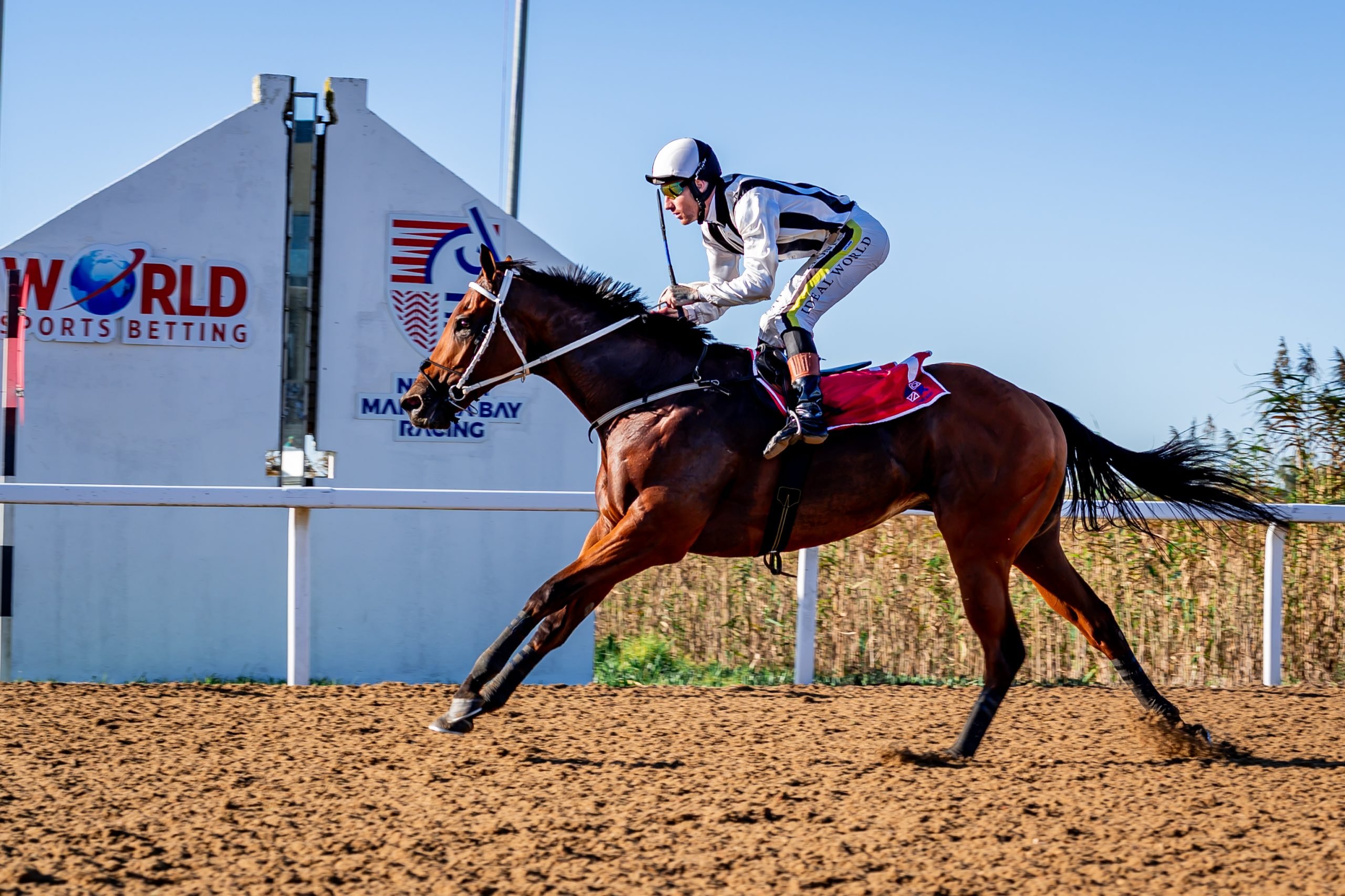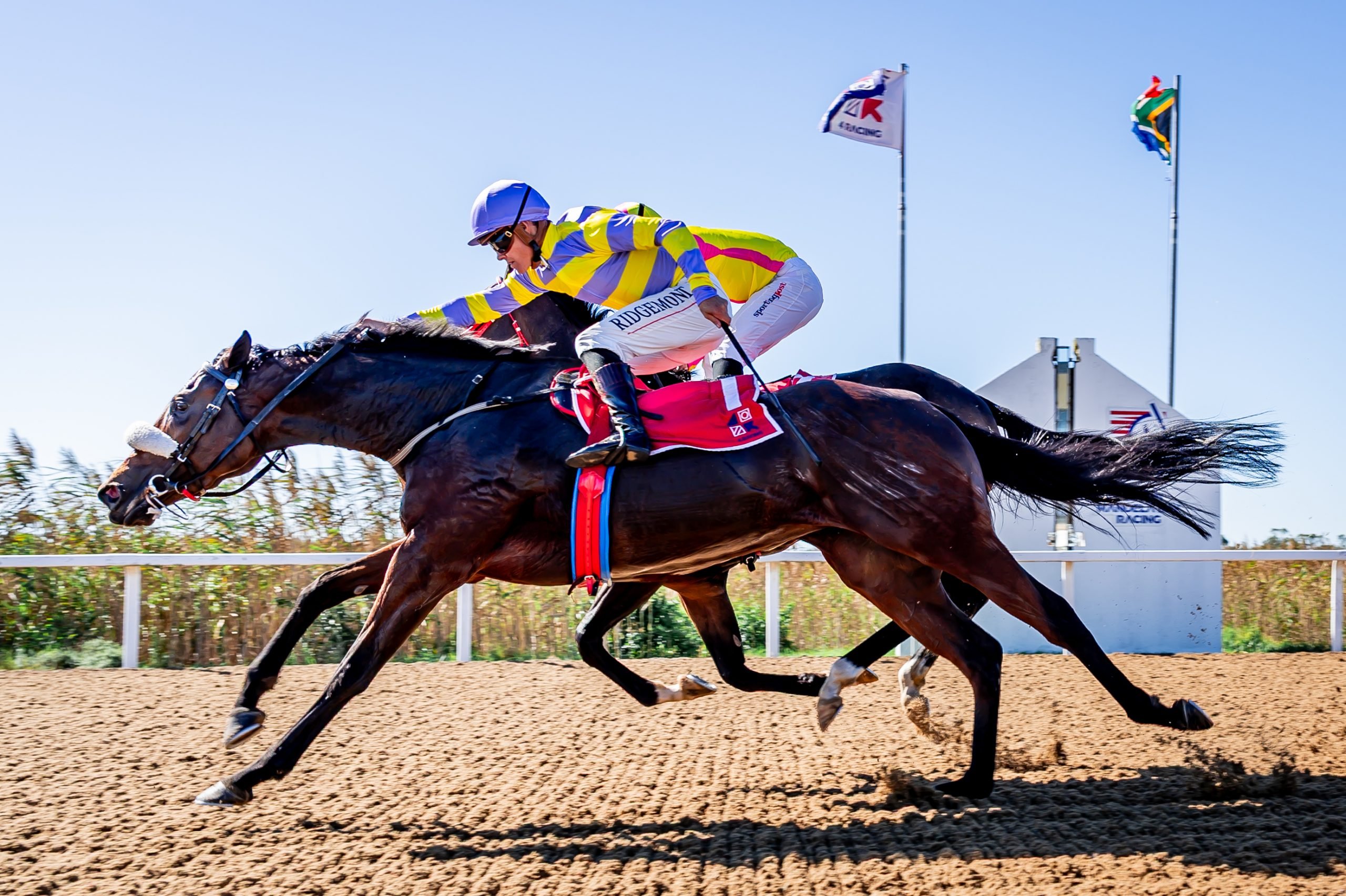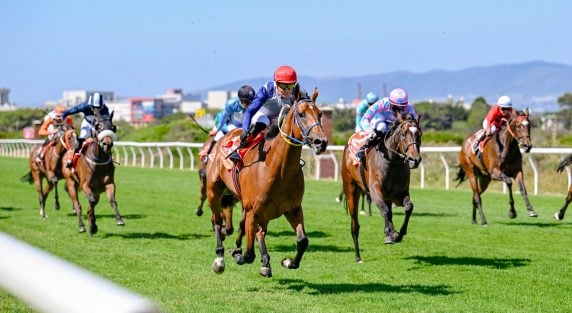The strategic and powerful role of the media to inform and empower Joe Public with balanced information was reinforced in no uncertain terms in these pages last weekend. Phindi Kema was granted a rare platform to have her say, and in time we will learn whether it was a few meters of lifeline or just a little more rope to hang her heady aspirations.
My eloquent Equus award-winning colleague Robyn Louw unwittingly found herself at the centre of a mild information storm after what, by all accounts, was essentially a routine, but apparently groundbreaking interview, with Phindi Kema in last weekend’s Louw Flyer, ‘State Of Play’ (SP 1873).
Robyn demonstrated with her seemingly unpopular choice of subject matter that it is not personal favourites or popular politics that dictates what fills her weekly verse, but instead her genuine concern for lifting horseracing out of the doldrums and getting relevant issues of interest into a domain where it can be discussed in a civil manner .
And that is surely how we should view the exposure, rather than assassinating the character and credit-worthiness of somebody we don’t really know? Interviews by their very nature are slightly one-sided and ego inflationary, and it just seems to have hit the fan even harder as Robyn came across as having quite enjoyed her obviously charming subject.
On lighthearted reflection, lifting the lid on the black sheep that is Phindi Kema has seen shades of private and public reaction on substantially lesser lines, but with a few parallels to that of the Richard Nixon Watergate Scandal of the 1970’s. But it shows that the media can add genuine value.
Briefly, a burglary in June 1972 at the Democratic National Committee headquarters at the Watergate office complex in Washington, D.C. eventually led to cover-ups and to Nixon’s resignation, the first US President to go that route. Nixon in fact made the exuberant Bill Clinton look like something of a modern-day saint in the end.
The Watergate Scandal included details of slush funds, cover-ups and invasive personal spying and characterised a story in which the media played a key role that brought down a president. Media coverage was in fact the singular catalyst that increased public awareness and the consequent political repercussions. And Washington Post reporters Bob Woodward and Carl Bernstein eventually achieved fame and notoriety overnight. Their major anonymous source of inside information for their investigative reporting was sensationally labelled ‘Deep Throat’ and thirty years later emerged to be highly placed – a former Deputy Director of the FBI.
This event, with its clandestine meetings and typical Yank hero building also interestingly led to a surge of interest in studies in Journalism in 1974.
It is quite fascinating to read how Nixon and his administration had a shaky relationship of major mutual distrust with the media from the advent of the Vietnam War already. And no effort was made to build relationships of trust. Instead it emerged that the President and his aides planned to use government agencies to rid themselves of what they perceived to be hostile media organizations. At the request of Nixon’s White House in 1969, the FBI tapped the phones of five reporters. In 1971, the White House requested an audit of the tax return of the editor of Newsday, after he wrote a series of articles about the financial dealings of a friend of the President.
Nixon said in a May 1974 interview with a supporter that if he had followed the liberal policies which he thought the media preferred, “Watergate would have been a blip.”
A case of too little, too late, but it still boils down to exposing the wrongs.
Without wishing to be over dramatic, it is the brave pieces like Robyn’s interview with Kema, that go beyond satisfying phantom Equus Award panellists, and more importantly touch the core of the cancer of the aloof introvert that is horseracing.
It seems we choose rather to be governed by perceptions, hearsay and myth and are threatened by individual mavericks who come out of the woodwork every now and again to ruffle the feathers of the bigger chickens. And it is really quite courageous that a journalist who has the ear and cellphone numbers of many of those who count in the corridors of power, can cross the floor to talk to the opposition to ensure that some form of balance is tossed into the pot of public information. Robyn achieved this a few months ago with Purple Capital, and in the end nobody died and we were all just a little bit wiser.
Having read the Louw Flyer piece a few times, I am still personally unclear though as to a few aspects of what Ms Kema said.
I remember reporting some time ago of an individual that had plans to stage Africa’s richest horserace on a polo field in Plettenberg Bay for a stake that would probably entail selling Robben Island and the Kruger National Park. That was Phindi Kema.
Just ignoring the fact that she irritates and aggravates our administrators on more complex matters, the mere thought of something five times the size of the Met being run in Plettenberg Bay where not even a bush track existed, was far-fetched in the extreme for us ordinary guys who just enjoy racing. That’s putting it mildly!
What is Pindi Kema’s real motivation in getting involved in a game, sport, industry – call it what you will- that she really knows sweet little about?
She has really just arrived from Mars in horseracing terms and after a short stint as a breeder, a pursuit she says was bizarrely fed by ‘curiousity’, and while allegedly miffing a few of her creditors along the way, is now on a righteous crusade to right the wrongs of the Memo Of Understanding signed way back in 1997.
And where is her Elandskraal Stud today in terms of viability and producing winning thoroughbreds?
She has then gone on to attempt to buy Arlington Racecourse, but got peeved with Phumelela when they pointed out that she had ignored a clear term of the sale related to future racing.
Ms Kema then tried to intervene in the sale of Clairwood, which she labelled ‘a quick buck mentality’ approach by Gold Circle. Was this intervention not just a political ploy to win voter support from the die-hard traditionalists to further her own aims, which are still frankly rather vague?
The traditionalist group would include most of us, along probably with many of Gold Circle’s Directorship, who, I am sure, would far rather have kept the Garden Course for racing if it was a simple emotional choice.
And R400 million goes a long way to stabilising racing in that region and ensuring adaptation of existing assets to optimise growth and cope with the demands of being competitive in the 21st century. It seems it is part of a bigger plan to ensure sustainability – which is more than anybody else has come up with – and we know racing could not have continued on the path that it was following. Yet Ms Kema thinks otherwise.
She now has her sights set on acquiring Greyville Racecourse. I didn’t know it was for sale, but assuming it is, it would be advantageous for credibility’s sake were Ms Kema to come out into the open and produce a business plan – alongside those of Arlington and Clairwood.
I hate making references to BEE and affirmative action, but the reality is that the horseracing world is really and truly Ms Kema’s oyster. She is an educated obviously driven individual who could make a material contribution. I personally cannot name one black female who holds any position of consequence beyond that of a salaried post in the operator structures. So the sport should be serenading and wining and dining folk of her demographical ilk.
I don’t believe it is ever too late, even though she has probably started on the wrong foot with everything from the Public Protector, the Competition Commission and the Equality Court in the saddle and running her races for her. This is after all an environment where we really only care about horseracing – and there is no place for those who don’t genuinely love the game.








